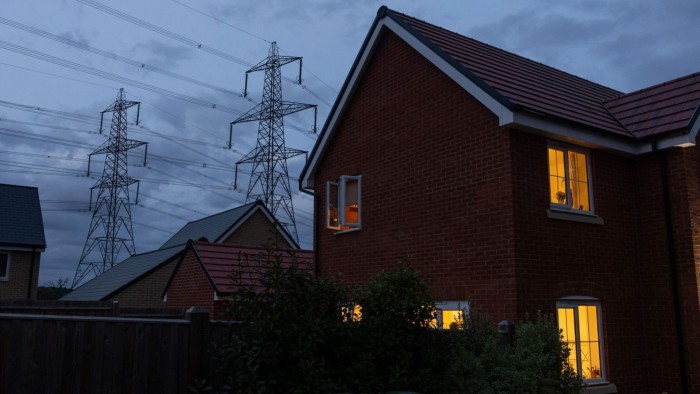Stay informed with free updates
Simply sign up to the UK energy myFT Digest — delivered directly to your inbox.
The UK’s leading energy retailers have warned of rising electricity prices, in a challenge to Labour’s pledge to bring household bills down by hundreds of pounds by 2030.
Executives from Octopus Energy, the UK’s largest household energy supplier, as well as major suppliers EDF and E.On said the increasing cost of investment added on to bills risked outweighing any potential falls in wholesale prices.
“If we continue on the path we are on, in all likelihood electricity prices are going to be 20 per cent higher — even if wholesale prices halve,” Rachel Fletcher, director of regulation at Octopus Energy, told the parliamentary Energy Select Committee on Wednesday.
“Non-commodity costs are adding about £300 [a year] of pressure,” she added.
The comments come as Labour is under pressure over energy costs, with critics warning that the government’s decarbonisation targets for the electricity sector are unachievable and risk pushing up charges.
British households pay much more for electricity than for gas, both on the unit rate and the daily standing charge.
The retail electricity price includes the wholesale price of electricity, as well as extra charges to pay for government policies such as supporting vulnerable households, renewable electricity subsidies and upgrading electricity networks.
Network owners are making huge investments in expanding and upgrading grids, with demand predicted to increase as households are encouraged to buy electric cars and heat pumps.
The government is also offering generous price guarantees to new wind farms, while households and businesses will also be charged for developing the Sizewell C nuclear power plant through a levy.
However, Simone Rossi, chief executive of EDF UK’s energy business, told the committee that electricity demand had fallen 8 per cent since before the coronavirus pandemic, which has spread costs across a smaller base.
“Even if the wholesale price were to halve, bills will rise,” he said, adding that the cost of serving customers in Britain is roughly double that of France.
Chris Norbury, chief executive of E.ON UK, said some of the modelling suggested “we could get to a position by 2030 where if the wholesale price was zero, bills would still be the same as they are today”, due to “non-commodity costs” from increased spending on policy and the network.
During its 2024 election campaign, Labour pledged to reduce total energy bills, which for most households include gas and electricity, by £300 a year by 2030.
However, the party has also pledged to decarbonise the electricity sector by 2030, requiring huge investment in new networks and generation capacity.
Fletcher called for a review of electricity transmission investment plans. “Ofgem is very close to effectively agreeing that we need to spend £80bn on electricity transmission over the next five years,” she said.
She added this could add roughly £100 to a typical electricity user’s bill over the next four years or so. “It is undoubtable we need more electricity transmission. But I think there are huge question marks over do we really need £80bn worth,” Fletcher said.
Lawrence Slade, Energy Networks Association chief, said: “Investments made by network operators into the future of the UK’s energy grid means they are connecting the country to more affordable sources of clean, homegrown energy, reducing our dependence on expensive imported fossil fuels.
“With total electricity demand set to double by 2050, we need a grid that’s ready to meet the demands of our electric future. By upgrading the grid to meet these demands, network operators are enabling long-term growth, with the overall clean-energy transition representing an estimated 83bn economic boost to the country.”
The energy department said: “We categorically reject this speculation. Wholesale gas costs for households remain 75% higher than they were before Russia invaded Ukraine in 2022, and the main reason energy bills remain high.
“The only way to bring down energy bills for good is by making Britain a clean energy superpower, which will get the UK off the rollercoaster of fossil fuel prices and on to clean, homegrown power that we control.”

